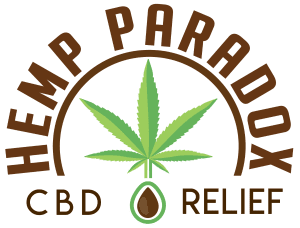When a child is sick and conventional medicine isn’t helping, parents understandably often turn to alternative treatments. Recently, that includes cannabidiol, CBD, which is a cannabis compound found in marijuana and hemp that’s being touted as a remedy for everything from pain and arthritis to seizures and sleep problems. Unlike the cannabis plant’s other well-known compound, THC (tetrahydrocannabinol), CBD does not get users high, it’s nonaddictive, and it has a low risk of side effects—which makes it seem like an appealing option for children.
While CBD is being used widely by adults, the best evidence for it comes from studies focusing on children with certain kinds of epilepsy. And increasingly, parents are giving CBD to their children to manage a range of other conditions, such as autism and anxiety.
CBD for Seizures
What parents say: Adam Adache, of Fort Lauderdale, Fla., says that Epidiolex has been life-changing for his daughter Maya. Now 11 years old, she began having seizures as a baby and was later diagnosed with Dravet syndrome. For most of her life, she endured multiple seizures each day, and none of the medications she’d been given provided long-term help. “Some were scarier than others, but they were all scary,” Adache says.
On Epidiolex, Maya has gone from having up to 20 seizures a day to having only about one seizure every few weeks or month. “It’s been amazing,” Adache says. “Occasionally we’ll see the small partial seizures, but they’re very few and far between . . . it was a dramatic change, night and day.”
CBD for Autism
What parents say: Valerie Hoback, of Conestoga, Penn., says she tried is to help her 11-year-old son Wyatt, who has a mild form or autism. Since he started taking it in June 2018, Hoback says, Wyatt no longer experiences the “head explosions” or the “screaming in his brain,” as he used to describe the way he felt. Hoback emphasizes that CBD has not cured Wyatt’s autism, but it has helped him “to move forward with school, therapy, and life at home,” she says.
Devinsky is also hopeful that CBD may prove to be effective in treating autism, in part because of parallels between that condition and epilepsy. “Some genes that cause autism also cause epilepsy, and some of the physiologic changes in nerve cells in autism are also similar to those in epilepsy,” Devinsky says. “So it’s not a shock that we might get some benefit from drugs that might work on both disorders.”
CBD for ADHD
What parents say: Last October, Lindsey Elliott started giving her 11-year-old son Tyler about 15 mg of a CBD oil made by a company called Elixinol to see whether it would help his attention deficit hyperactivity disorder (ADHD). For years, Tyler’s inability to focus made it hard for him to pay attention in school and keep up with schoolwork. But after trying CBD, “Tyler has improved leaps and bounds,” Elliott says. “Both he and his teacher have noticed a big difference. Tyler feels like he can concentrate more, and he feels more part of the team because he’s not sitting there lost.”
CBD for Pain
What parents say: Hoback, in Pennsylvania, says that CBD has not only helped manage her son Wyatt’s autistic behaviors but also eased her 15-year-old daughter Emma’s migraines, which she has suffered from since she was 3 years old. “She is on a prescription medication for the migraines, but it will only help if she is able to catch them in time,” Hoback says. “If not, she’s in terrible pain and has vomiting.
CBD and Risks to Consider
Talk with your child’s doctor. If you’re considering CBD for your child, let your pediatrician know so that he or she can manage your child’s overall care, monitor possible side effects, and help you avoid medication interactions. “It’s hard to find physicians at this point who are experienced and comfortable in this area, so that’s going to be a challenge,” Shannon says. “But I think that’s a good goal, if they can find a professional who can guide them with this.”
Watch for side effects. Overall, research suggests that CBD has few side effects, especially compared with the powerful prescription medications sometimes used to treat serious childhood conditions, Shannon says. In the Epidiolex trials, for instance, the side effects were minor, including problems such as liver function abnormalities, lethargy, decreased appetite, and diarrhea, (especially at higher doses), but the medication has “very good safety data,” Devinsky says.
Still, little is known about the risks of taking CBD long-term, so it should be used cautiously, especially in children. And it can interact with several medications, so be extra-careful if your child regularly takes any over-the-counter or prescription drugs.
Start low and slow. It can take time to figure out an appropriate dose of CBD. Goldstein, who has treated many children with CBD (often in combination with THC) for conditions such as autism and epilepsy, says that “there’s no one size fits all,” and it takes trial and error to find the right dosage for each child. “I prepare parents that it will likely take us six to 12 months to see what will work,” Goldstein says. A good rule of thumb: Start at a low dose and increase gradually, which will guard against side effects.
Store CBD safely. Just as you would with any other medication, remember to store CBD products out of reach of children, especially.


